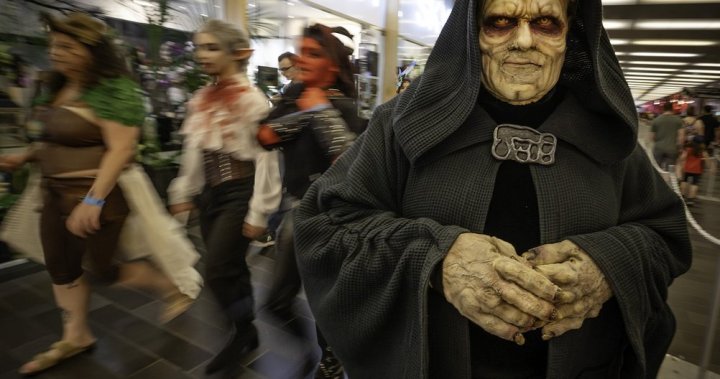As I strolled through Palais des congrès this weekend, the electric energy was impossible to miss. Montreal Comiccon’s 16th edition wrapped up yesterday with a remarkable surge in attendance, drawing over 65,000 fans – a 15% increase from last year. The sea of elaborate cosplays and excited conversations created an atmosphere that felt more vibrant than any edition I’ve covered in recent years.
“We’re seeing something fascinating this year,” explained François Morin, Montreal Comiccon’s programming director, during our conversation amid the bustling event floor. “American vendors and artists who typically focus on U.S. conventions are increasingly looking north due to the trade tensions affecting their profit margins stateside.”
This shift comes as ongoing tariff disputes between the United States and China have significantly impacted the collectibles and memorabilia market. Many vendors at the event told me they’re feeling the squeeze of increased costs for imported merchandise.
Michael Roux, who owns Stellar Comics in Boston but made his first appearance at Montreal Comiccon this year, shared his perspective: “When import costs jump 20%, something has to give. The Canadian market, with its different trade agreements, suddenly became much more attractive.”
The economic ripple effect has been substantial for Montreal’s tourism sector. According to Tourisme Montréal, the convention generated approximately $18.3 million in economic benefits for the city, with hotels reporting near-capacity bookings throughout the weekend.
Walking through Place d’Armes yesterday evening, I noticed restaurant patios filled with cape-wearing attendees and families discussing their convention experiences – a welcome sight for local businesses still recovering from pandemic-era losses.
The convention’s international appeal was evident in the diversity of attendees. Event organizers reported visitors from across North America, Europe, and as far as Japan, many drawn by this year’s impressive guest lineup that included Elijah Wood, Christopher Lloyd, and Quebec’s own Karine Vanasse.
What particularly caught my attention was the expanded space dedicated to Quebec’s own creative talents. The “Créateurs d’ici” section showcased local comic artists, game developers, and filmmakers, highlighting Montreal’s growing influence in the global pop culture landscape.
“C’est vraiment spécial de voir notre culture locale célébrée aux côtés des grands noms internationaux,” remarked Julie Lemieux, a Montreal-based comic artist whose work gained significant attention throughout the weekend.
The economic opportunity hasn’t gone unnoticed by city officials. Montreal Mayor Valérie Plante, who made a surprise appearance Saturday afternoon, emphasized the convention’s significance: “Events like Comiccon strengthen Montreal’s position as a cultural hub while creating meaningful economic opportunities for our local businesses.”
Industry analysts suggest this trend may continue as long as international trade tensions persist. Sophie Granger from the Montreal Economic Institute points out that “we’re witnessing a redistribution of the North American convention circuit that could benefit Canadian cities for years to come.”
For Montreal businesses, the timing couldn’t be better. The summer festival season has long been crucial for the local economy, and adding stronger convention attendance provides welcome stability.
As I observed families browsing artist booths and collectors haggling over vintage comics, the economic aspects seemed secondary to the pure joy on display. Yet the financial impact remains significant, especially for independent creators.
Quebec comic artist Louis-Philippe Morin noted during our conversation that “sales are up nearly 30% compared to last year. People seem more willing to support creators directly.”
Looking ahead, organizers have already announced dates for 2025, with plans to expand floor space to accommodate growing interest from international exhibitors. They’re also working with local hotels to secure better rates for attendees as demand increases.
The success of this year’s event highlights Montreal’s ability to capitalize on shifting market dynamics while staying true to the fan-focused experience that has built Comiccon’s reputation over the past 16 years.
As I left the convention yesterday, watching cosplayers spill onto rue Saint-Antoine and blend into the regular Sunday crowd, I couldn’t help but reflect on how these seemingly niche cultural events have evolved into economic powerhouses with impacts extending far beyond their immediate fanbase.
For Montreal, it’s another example of how cultural industries continue to play a vital role in the city’s economic resilience and international appeal – even when that boost comes from unexpected global circumstances.







